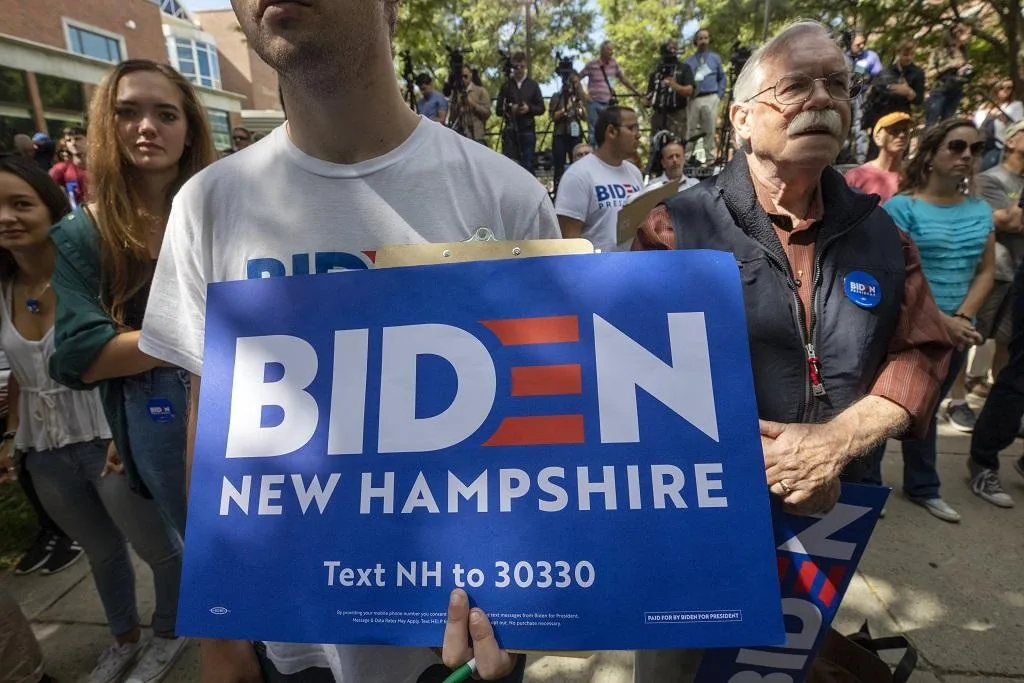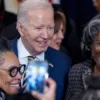
Last February, the Democratic National Committee upended the schedule of Democratic primaries by resolving that South Carolina will replace New Hampshire as the first Democratic primary. The vote was just a formality once President Biden had advised the DNC’s Committee on Rules and Bylaws last December 1 that he wanted the shift.
“Everyone was shocked,” one anonymous rules committee member told a New York Times writer. “We would have to vote for it anyway, because the feeling was you’re either with the president or against him.”
Another rules committee member, Elaine Kamarck, told Politico, “While we followed Biden’s lead on this, the committee itself was torn about whether [we should let] New Hampshire go first. It was really his decision that tipped the hat on this.”
The surprise switch was seen both as a move to lock in Biden’s renomination and as one more repayment of his never-ending political debt to Rep. James Clyburn. The South Carolina congressman’s effusive endorsement, shortly before that state’s crucial primary, saved Biden’s collapsing campaign for the Democratic nomination in 2020 and led to a string of primary wins that quickly created a bandwagon effect. Clyburn’s protégé, Jaime Harrison, now heads the DNC.
But this shift in the primary schedule has painted the president into an awkward corner that could damage his campaign and his prospects of denying Donald Trump a second term. While the DNC can determine the primaries that the national party officially recognizes, it can’t alter state law. Republicans control New Hampshire state government wall to wall. They are not about to change the state law providing that the Granite State must always go first, even less so given the mess that Democrats have created for themselves.
In response to this standoff, Biden and the DNC declared that the president will not participate in a primary that does not conform to the DNC’s terms, so there. But in the months since that declaration, several other Democrats have gotten into the race. They include RFK Jr. on the conspiratorial right, the spiritualist Marianne Williamson, and possibly others. Professor Cornel West is running on the Green Party line, but The Nation magazine recently ran a piece by two of its senior editors urging West to run in Democratic primaries. There have also been rumblings that Rep. Dean Phillips of Minnesota, a moderate, is flirting with a run.
If Biden is not on the ballot and fringe candidates make off with all the New Hampshire Democratic delegates, it will supercharge the morning-after media narrative that Biden is too old, his support is fragmenting, he’s politically inept, etc., etc. And that story will add to the pressure for a non-fringe Democrat to mount a serious challenge to Biden.
Recall that in 1968, it was only after Eugene McCarthy demonstrated Lyndon Johnson’s vulnerability in the New Hampshire primary that Robert Kennedy changed his mind and decided to get into the race, leading to LBJ’s abdication. This dynamic is the last thing Biden needs, at a time when many Democrats are already saying privately that they admire Biden but wish that he had stepped aside and not run for a second term. Maybe so, but now Biden is all in. Do we really want a late Biden exit from the race after a political humiliation, in favor of a spring 2024 free-for-all?
This shift in the primary schedule has painted the president into an awkward corner that could damage his campaign and his prospects of denying Donald Trump a second term.
There was one weirdly contradictory thing about Biden’s stated rationale for changing the primary schedule. In his December 1, 2022, letter to the DNC’s Rules and Bylaws Committee, a letter that was surely orchestrated in advance, Biden wrote: “We must ensure that voters of color have a voice in choosing our nominee much earlier in the process … For decades, Black voters in particular have been the backbone of the Democratic Party but have been pushed to the back of the early primary process.”
Think about that for a moment. It makes sense as a general principle. But in the current political context, people of color did have decisive influence in choosing the 2020 nominee, namely Joe Biden, because it was the heavily African American South Carolina primary that saved Biden’s campaign.
So voters of color have already exercised significant influence in selecting a nominee who is now president, and who is in a very close re-election campaign that will determine not just support for Black rights but whether American democracy survives at all. Surely Biden is not saying that he supports Black voters having more influence to select a Democratic nominee other than himself in 2024. Conversely, if his moving South Carolina to first place was cynically intended just to guarantee Biden overwhelming support and scare off challengers, that gambit has now backfired.
The DNC, meanwhile, has pushed back its deadline from June to September 1 for New Hampshire to move its primary or be excluded from the officially recognized process. Not only would that outcome bar Biden from participating and risk the electoral votes of a key swing state in the general election. It would exclude key New Hampshire Democrats such as Sens. Maggie Hassan and Jeanne Shaheen from serving as delegates.
Further complicating matters is that the DNC wanted Georgia to move up its primary to fourth on the calendar, after South Carolina, Nevada, and New Hampshire, but Republicans also control that state government, which simply rejected the move. The DNC backed down on that one. Why would they press the issue with New Hampshire?
There is an obvious compromise that will allow the Democrats to carry out their commitment to have the first primary be more representative of America, while still allowing Biden’s name to be on the 2024 New Hampshire ballot: Have the change take effect in 2028, when there will be no Democratic incumbent and an open contest for the nomination.
Some New Hampshire Democrats have raised this possibility with DNC officials—very quietly—because New Hampshire’s first-in-the-nation status is politically sacrosanct. Suggesting that it could be changed, even after a delay of four years, would be politically lethal at home.
Biden is caught in a trap of his own making. Having made this commitment to Black voters, whose high turnout he desperately needs in the general election, it would seem like a betrayal to renege on it. But there is one person who could make the 2028 compromise entirely acceptable: Rep. James Clyburn.
Clyburn, who has had outsized influence in this whole process, could give a speech or send a letter pointing out that moving South Carolina to first-in-the-nation status is important, but re-electing Joe Biden is even more important. So let the shift take place in 2028 and have Joe Biden compete in New Hampshire in 2024, and win it.
I sent an email to Clyburn’s communications director asking what the congressman thought of the idea. I got no response. Biden’s re-election officials are also well aware of this idea. As the DNC and the Biden campaign frantically seek some kind of face-saving compromise between now and September 1, the 2028 option should be on the table.
There are so many ways that Biden’s re-election campaign can falter. Being humiliated in the New Hampshire primary by fringe candidates and starting a bandwagon in reverse is one self-inflicted mess that Biden, Clyburn, and the DNC can still head off. Will they?


